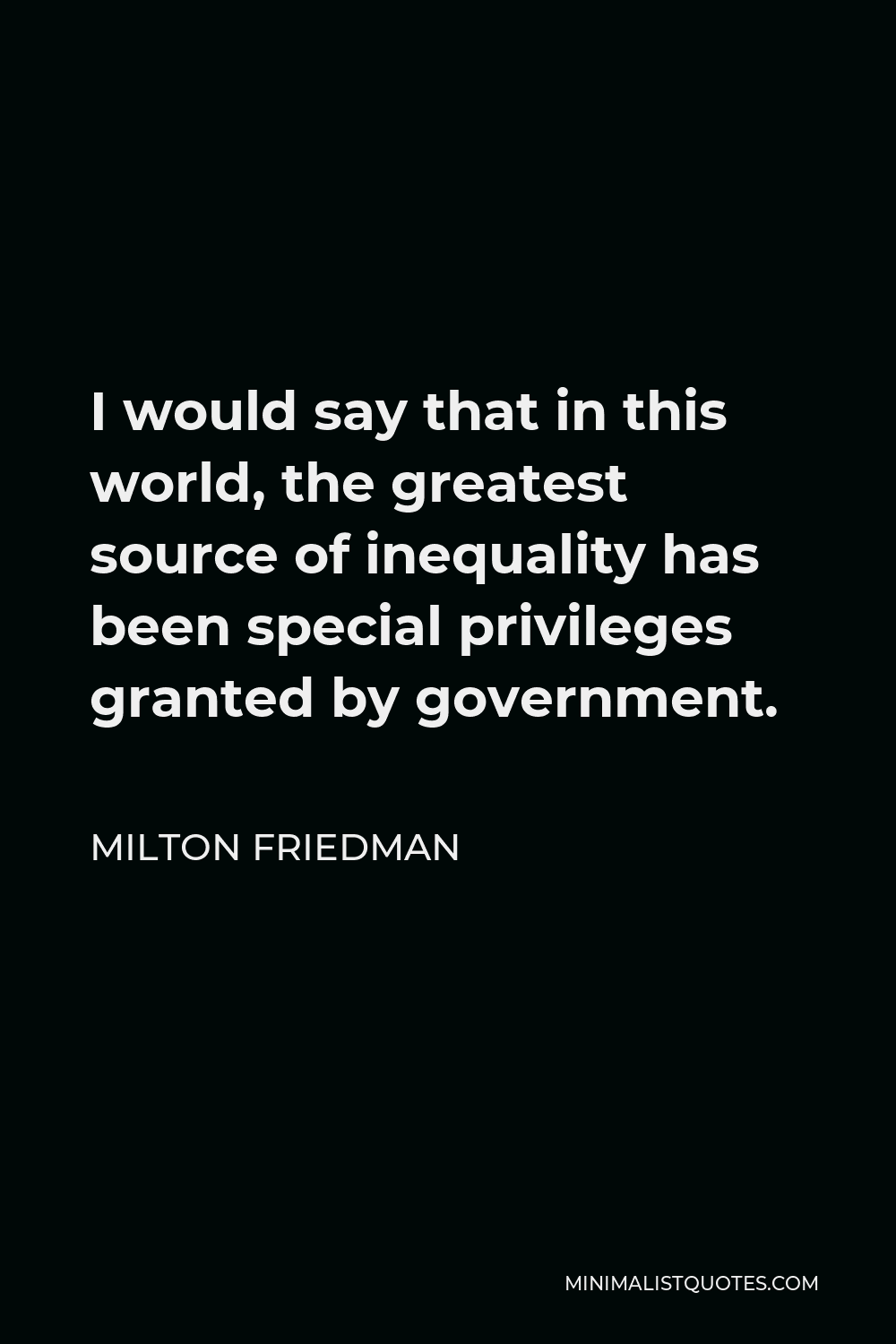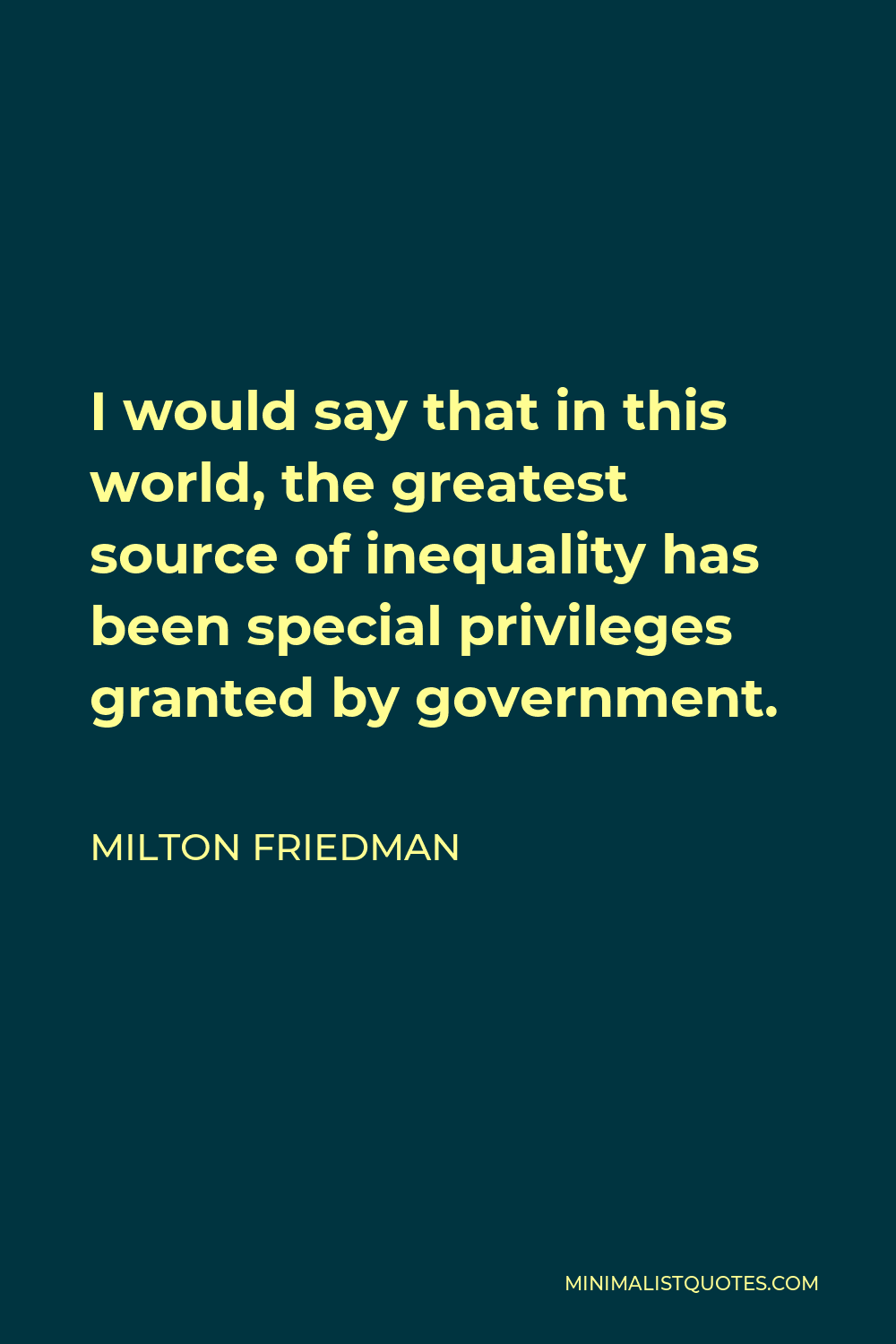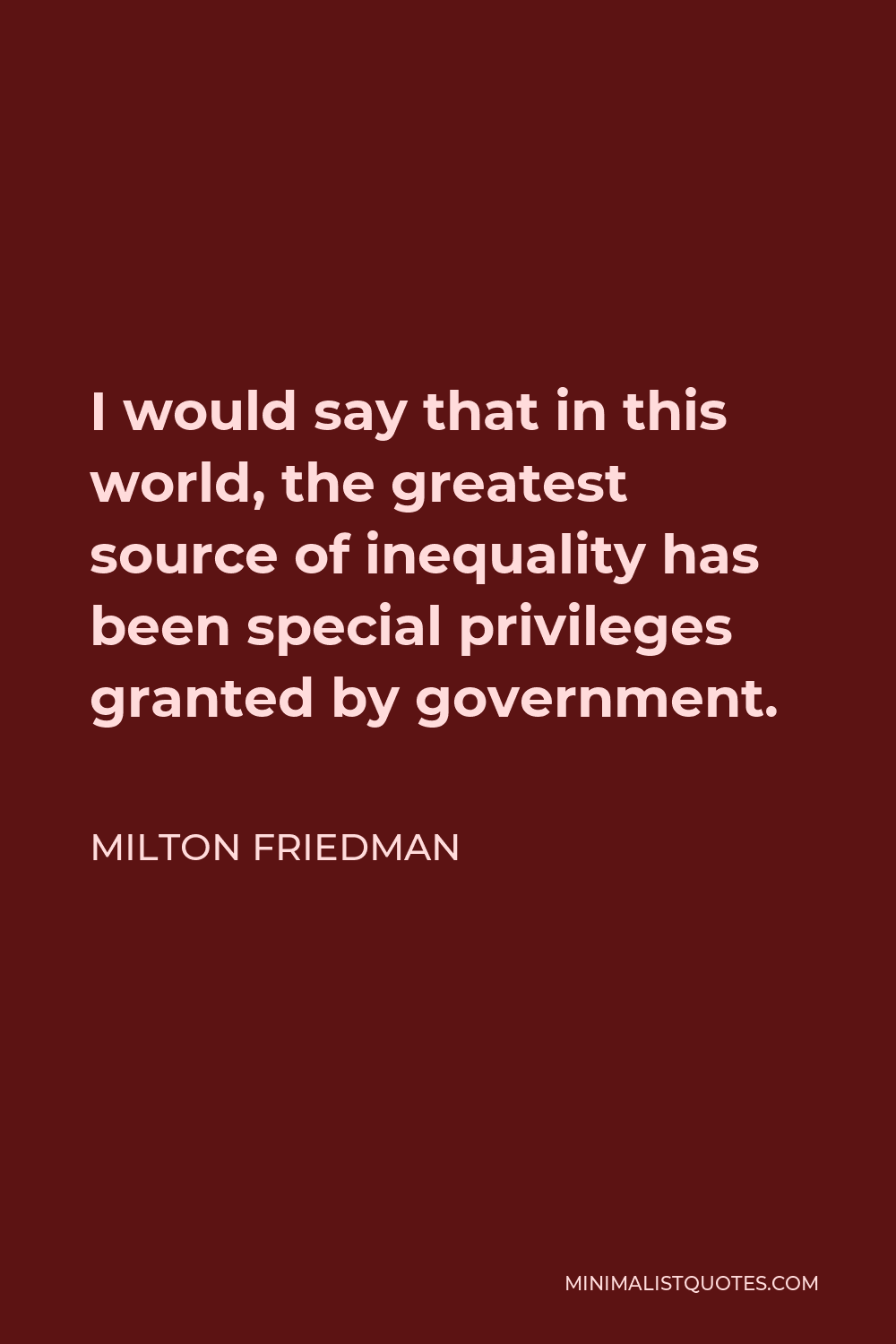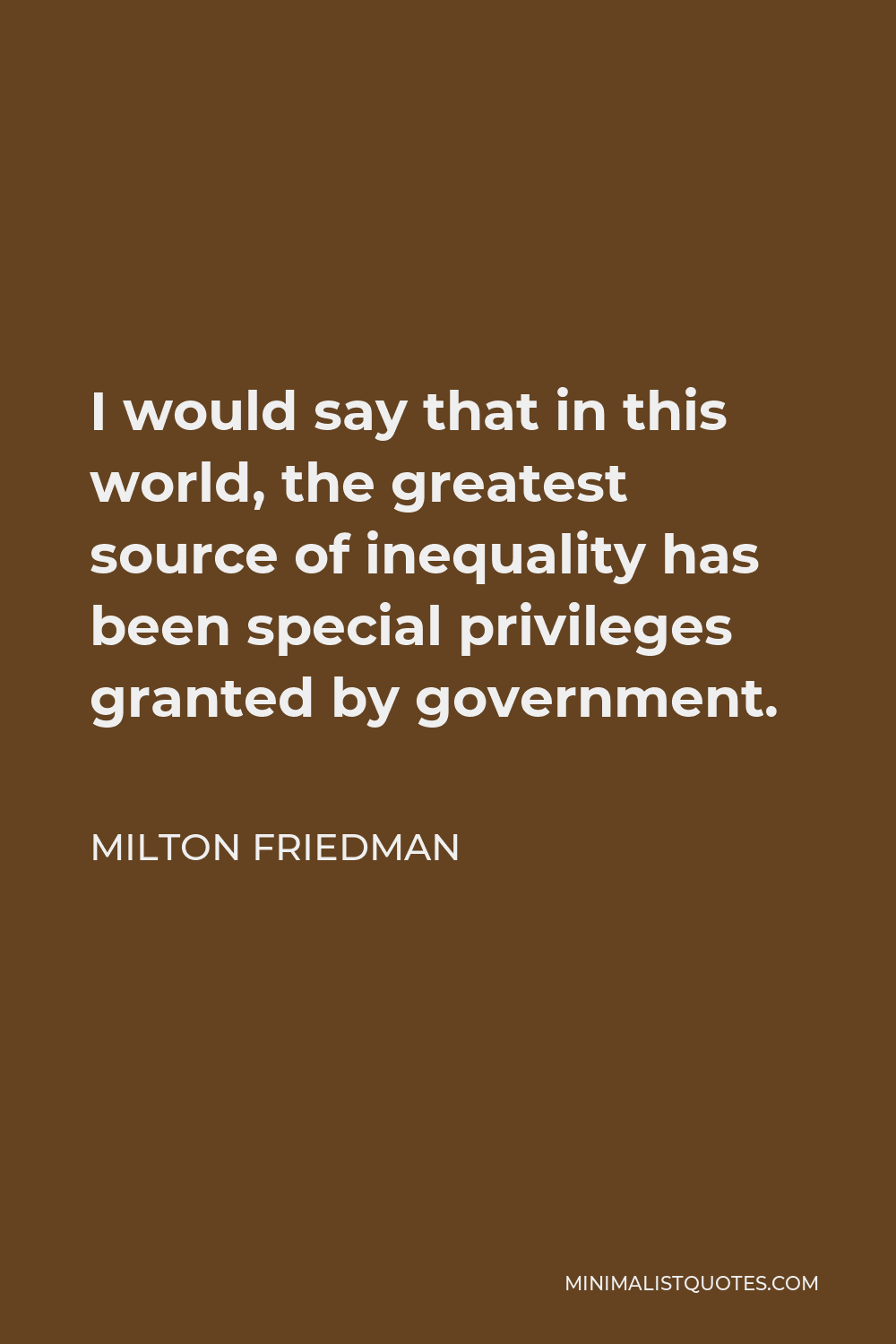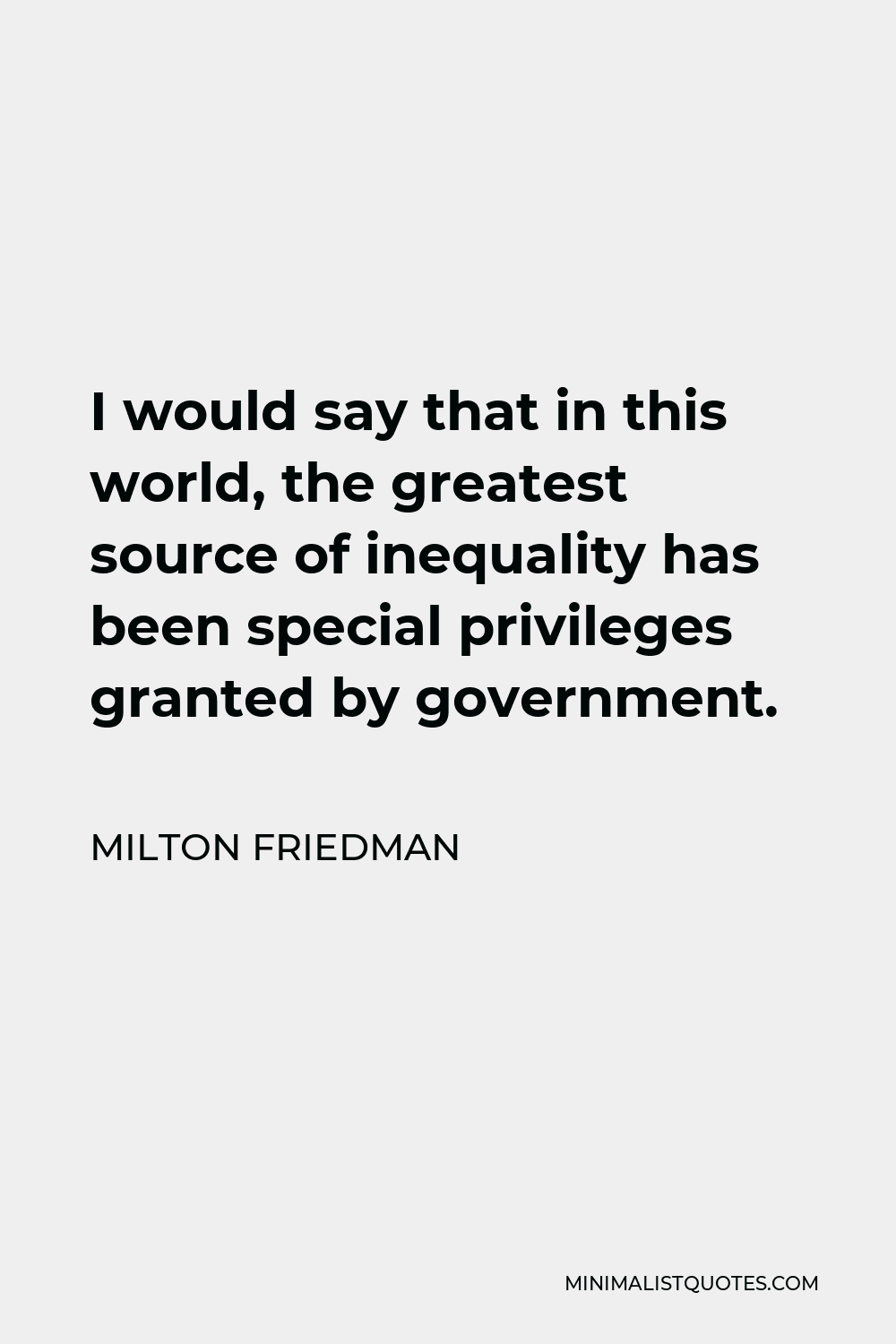One role of prohibition is in making the drug market more lucrative.
MILTON FRIEDMANI would say that in this world, the greatest source of inequality has been special privileges granted by government.
More Milton Friedman Quotes
-





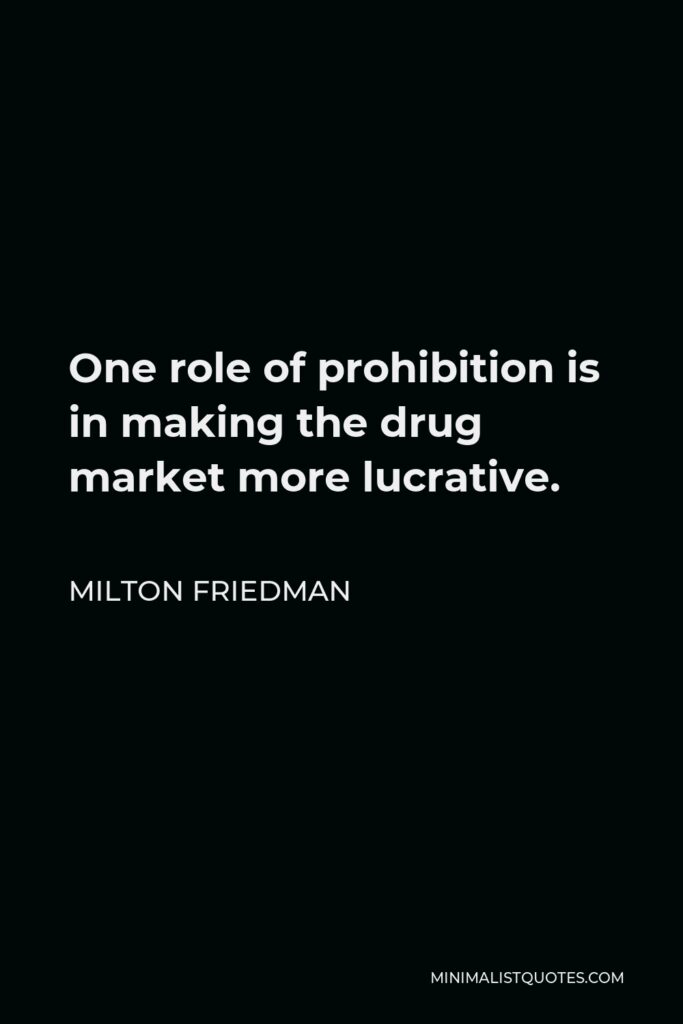

-





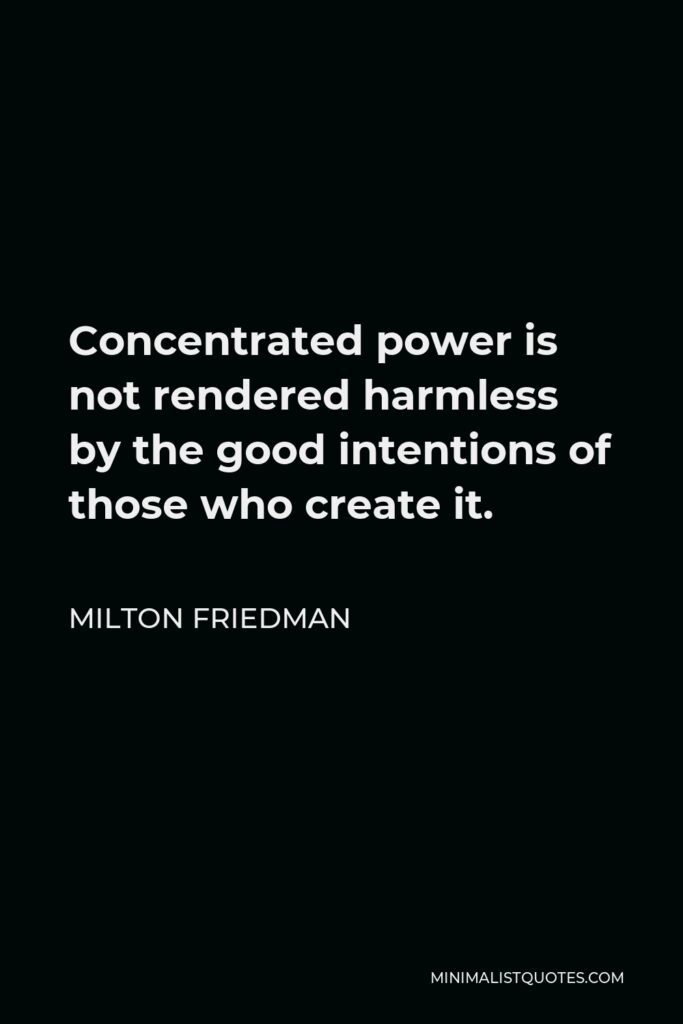

Concentrated power is not rendered harmless by the good intentions of those who create it.
MILTON FRIEDMAN -





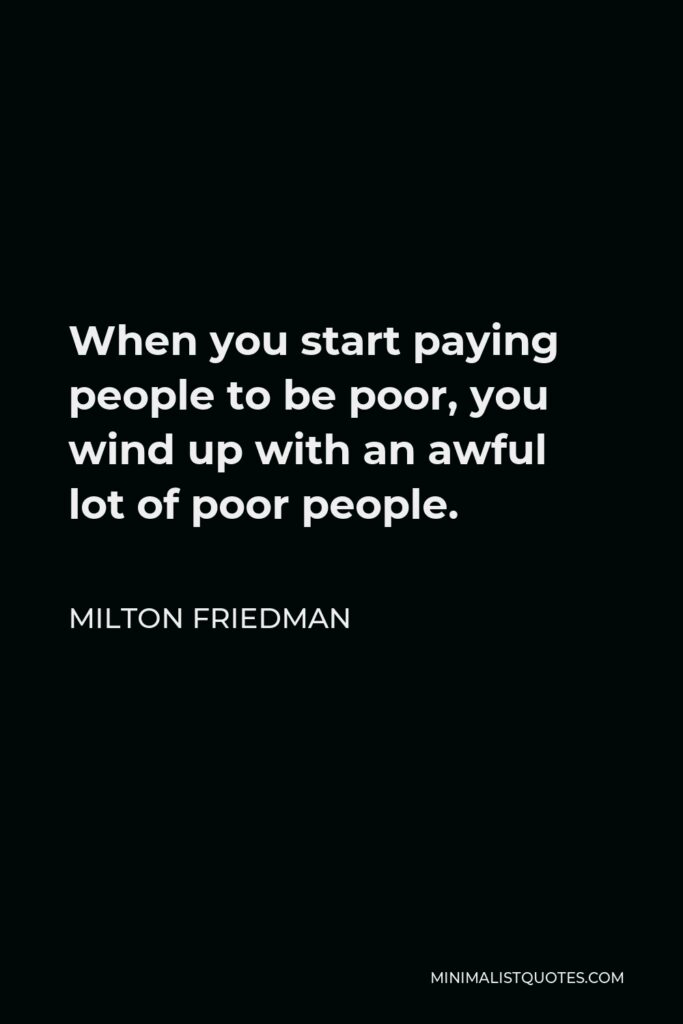

When you start paying people to be poor, you wind up with an awful lot of poor people.
MILTON FRIEDMAN -





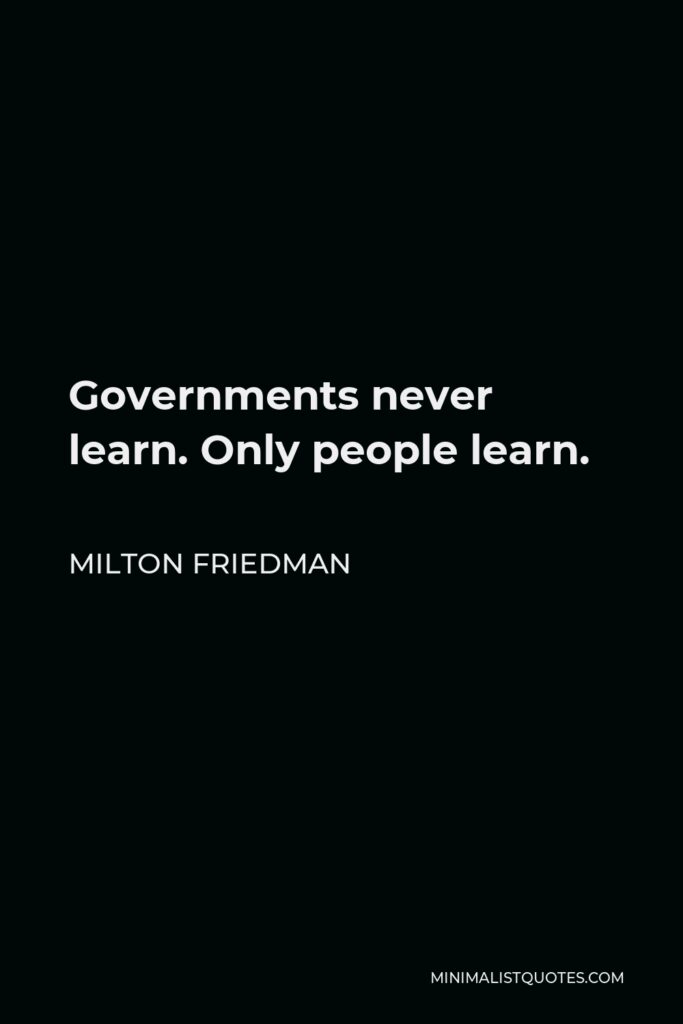

Governments never learn. Only people learn.
MILTON FRIEDMAN -





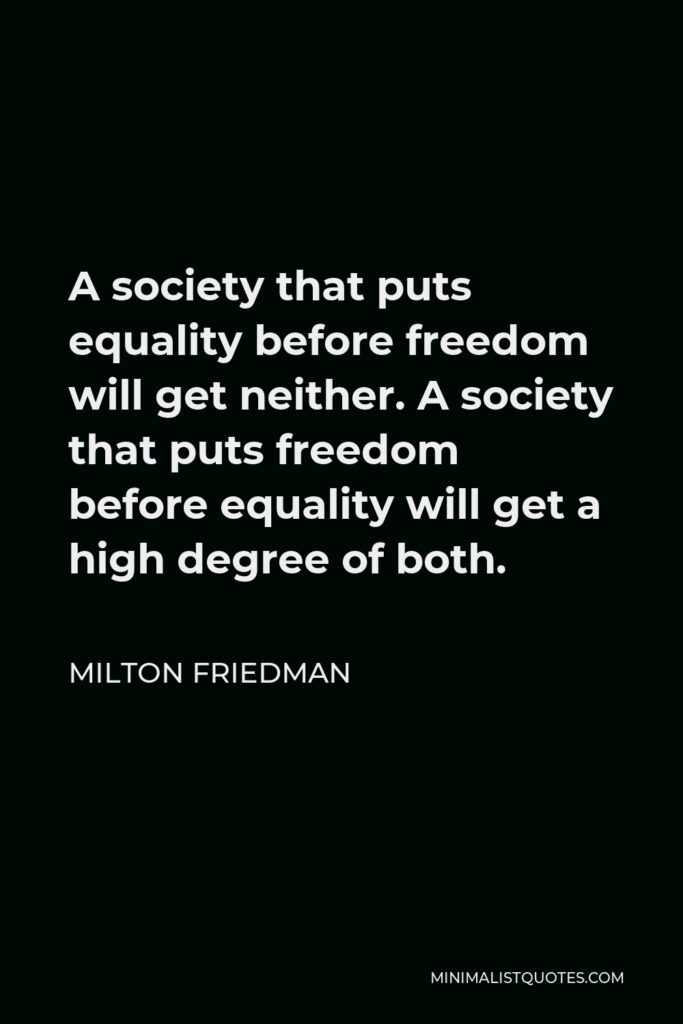

A society that puts equality before freedom will get neither. A society that puts freedom before equality will get a high degree of both.
MILTON FRIEDMAN -





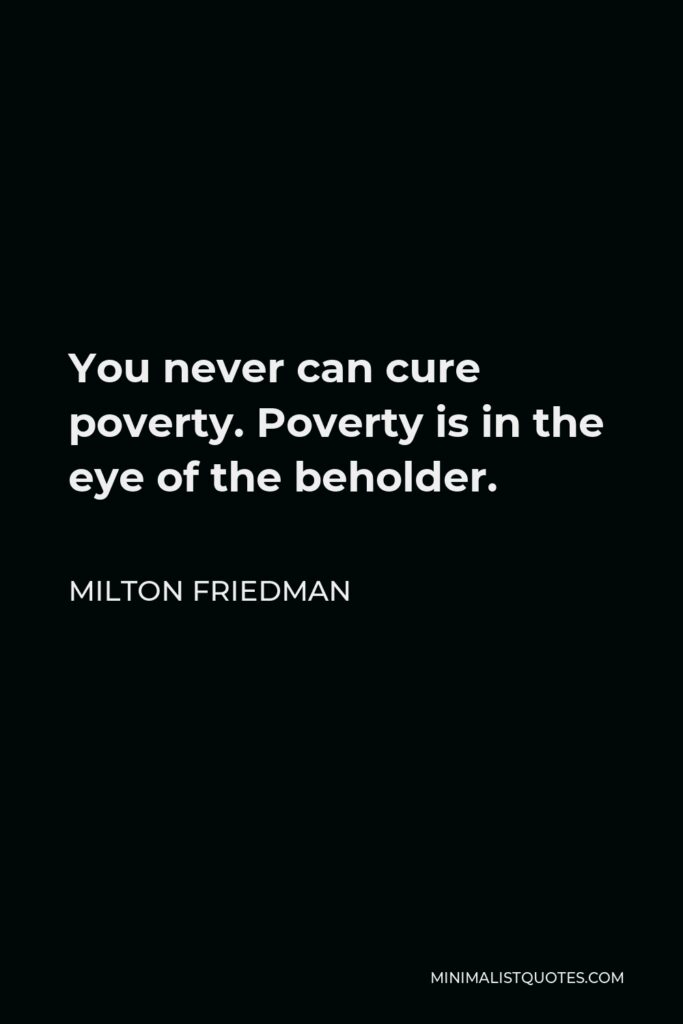

You never can cure poverty. Poverty is in the eye of the beholder.
MILTON FRIEDMAN -





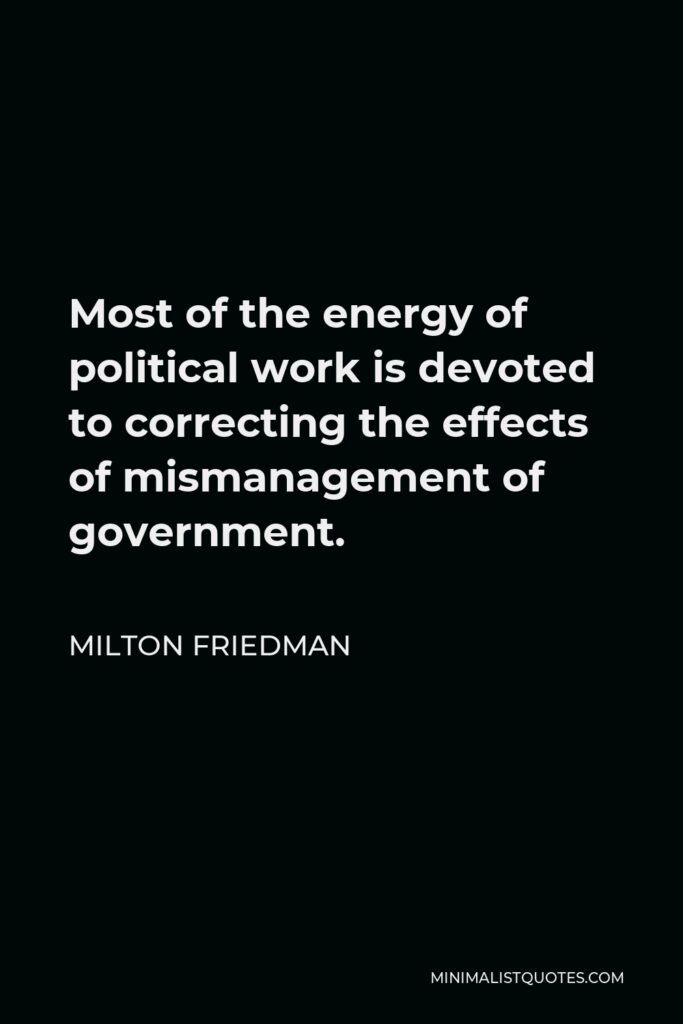

Most of the energy of political work is devoted to correcting the effects of mismanagement of government.
MILTON FRIEDMAN -





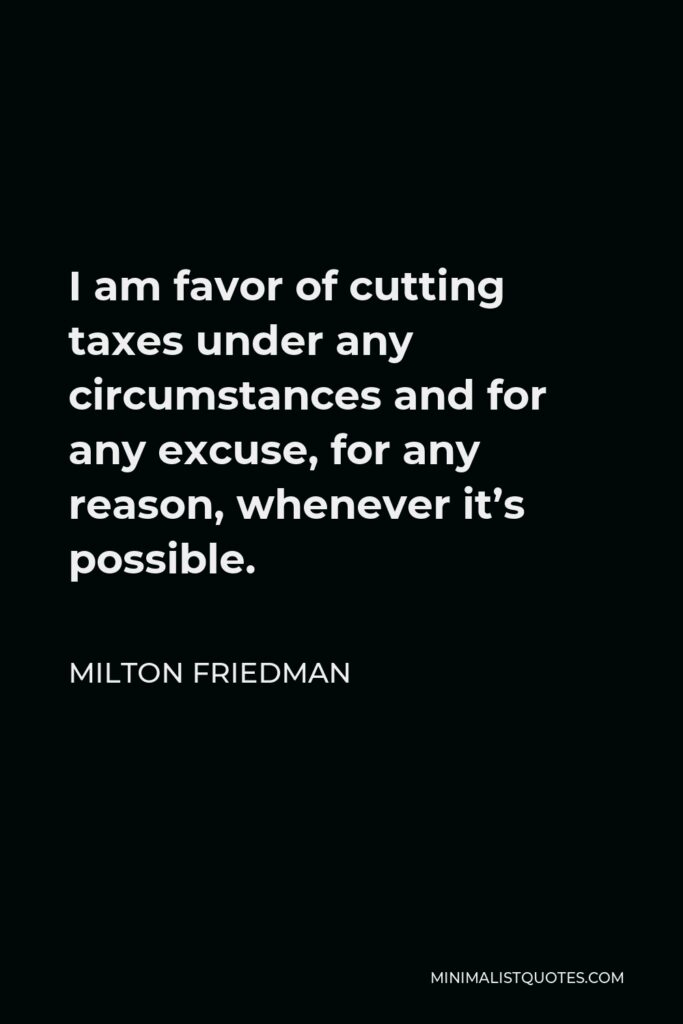

I am favor of cutting taxes under any circumstances and for any excuse, for any reason, whenever it’s possible.
MILTON FRIEDMAN -





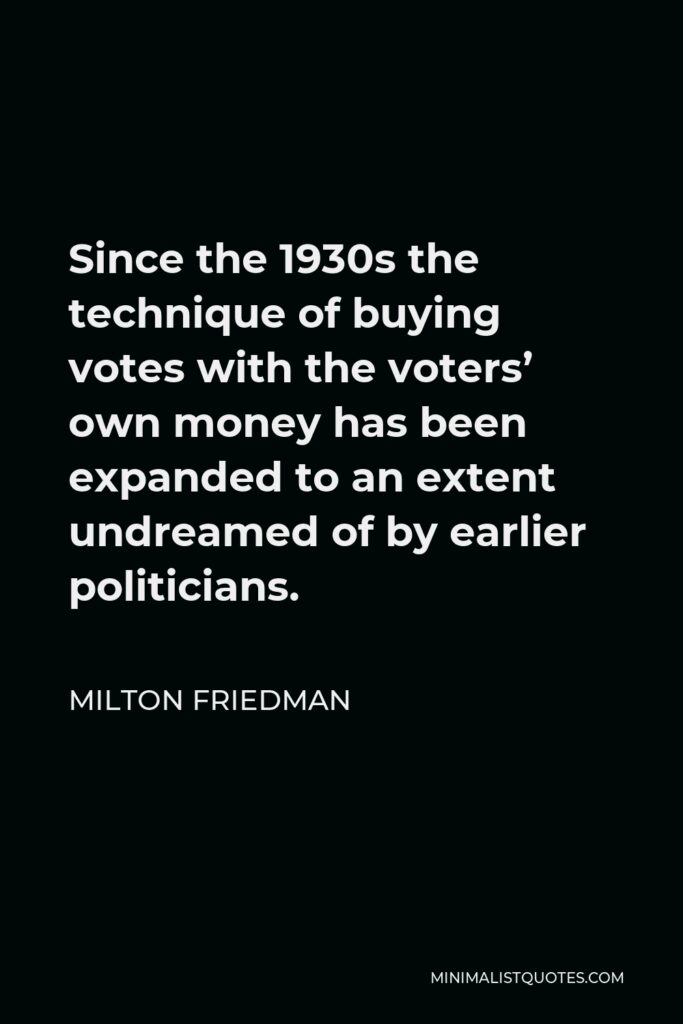

Since the 1930s the technique of buying votes with the voters’ own money has been expanded to an extent undreamed of by earlier politicians.
MILTON FRIEDMAN -





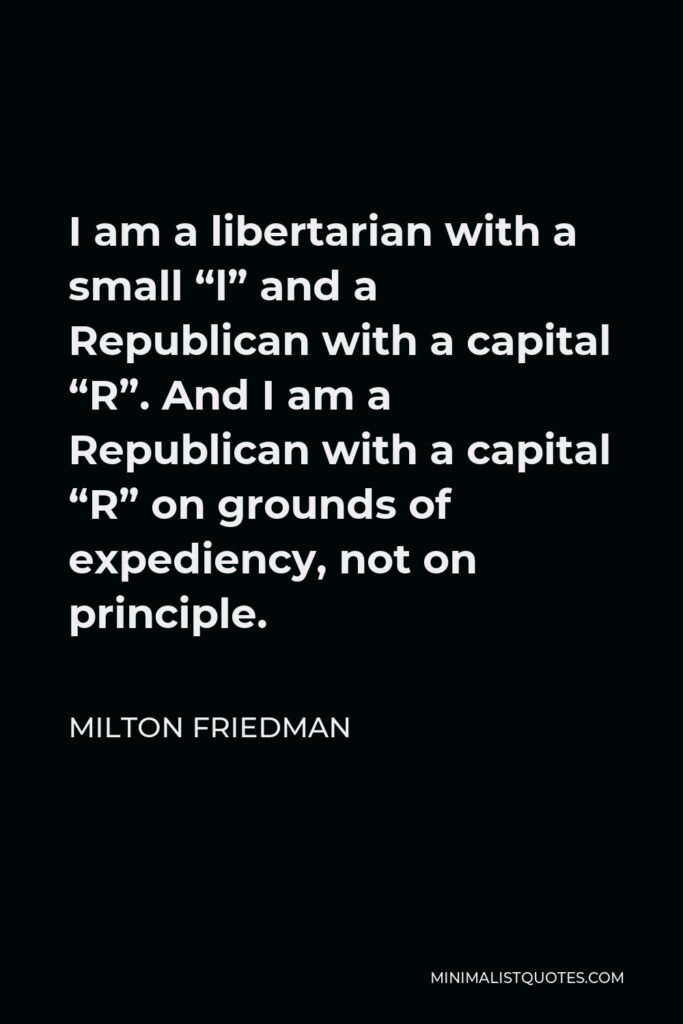

I am a libertarian with a small “l” and a Republican with a capital “R”. And I am a Republican with a capital “R” on grounds of expediency, not on principle.
MILTON FRIEDMAN -





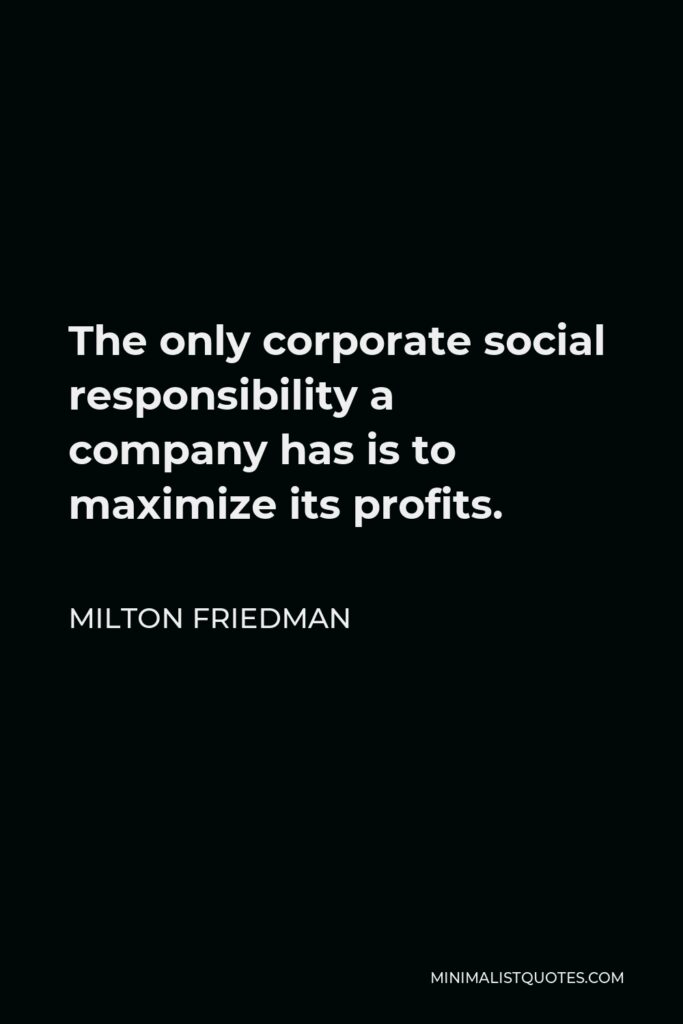

The only corporate social responsibility a company has is to maximize its profits.
MILTON FRIEDMAN -





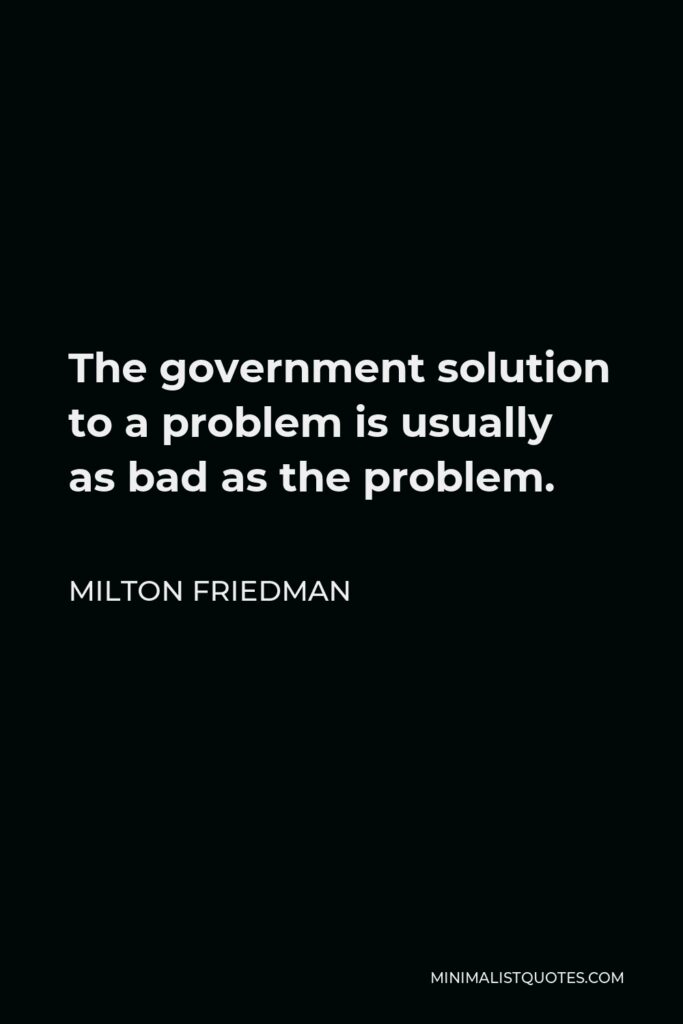

The government solution to a problem is usually as bad as the problem.
MILTON FRIEDMAN -





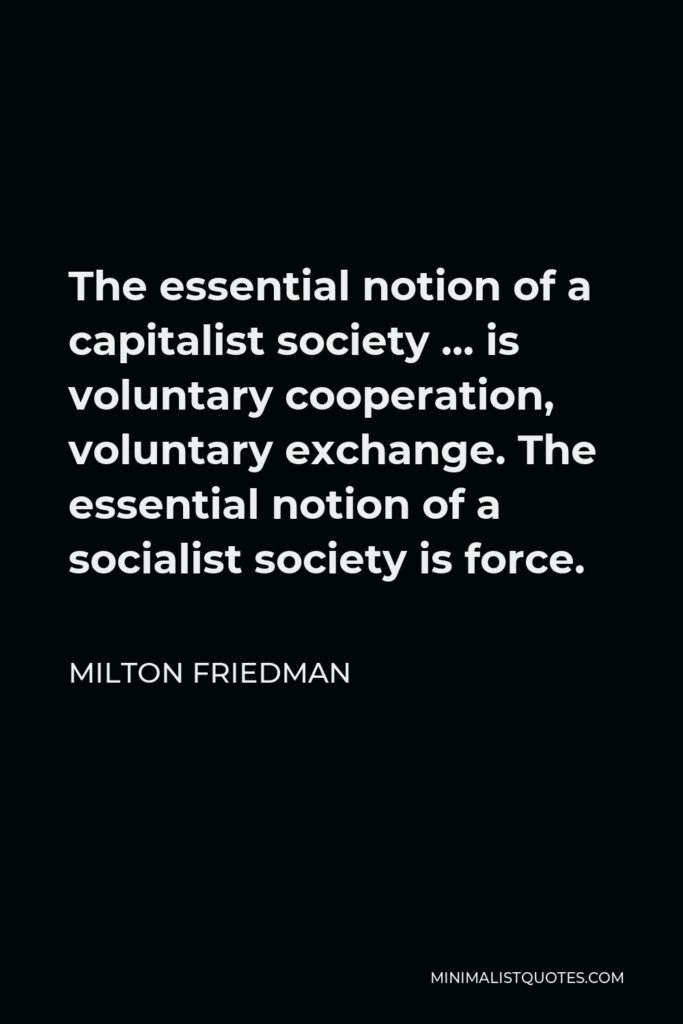

The essential notion of a capitalist society … is voluntary cooperation, voluntary exchange. The essential notion of a socialist society is force.
MILTON FRIEDMAN -





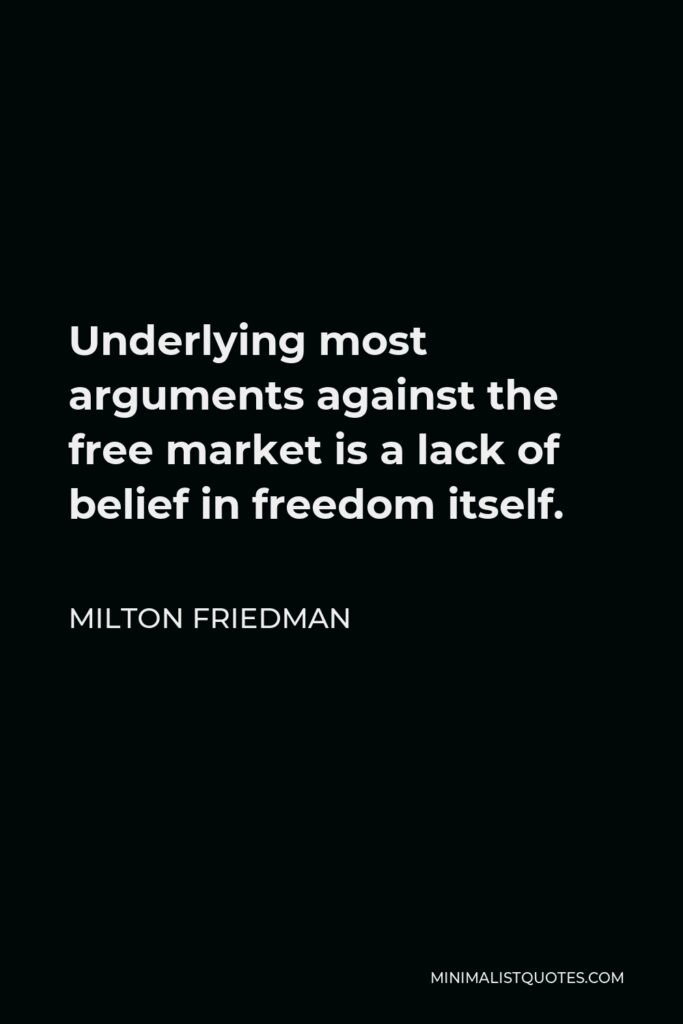

Underlying most arguments against the free market is a lack of belief in freedom itself.
MILTON FRIEDMAN -





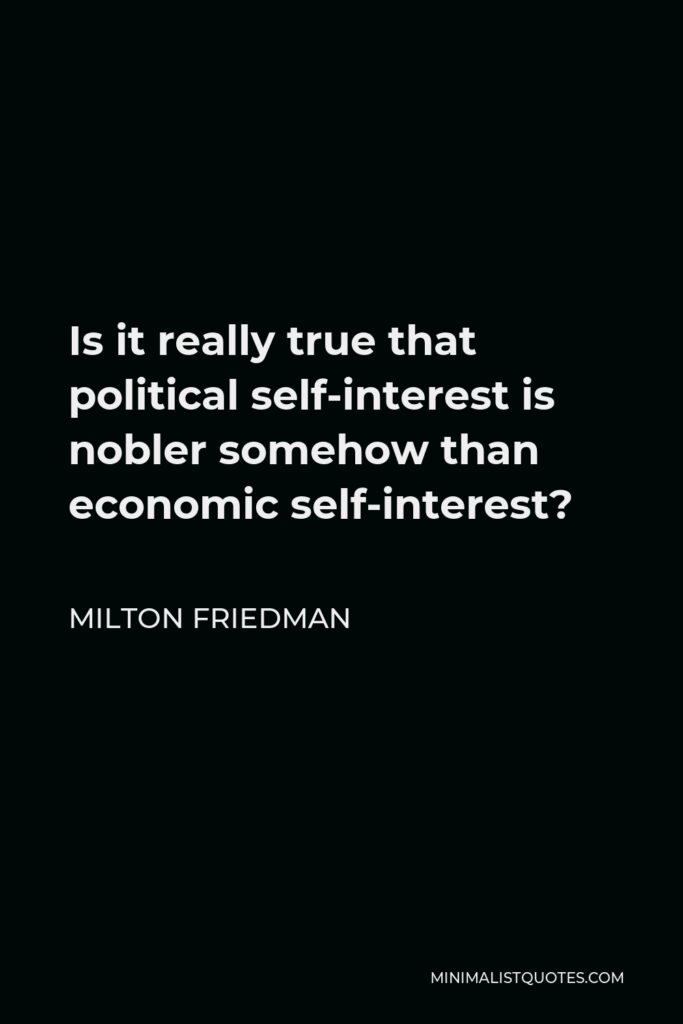

Is it really true that political self-interest is nobler somehow than economic self-interest?
MILTON FRIEDMAN -





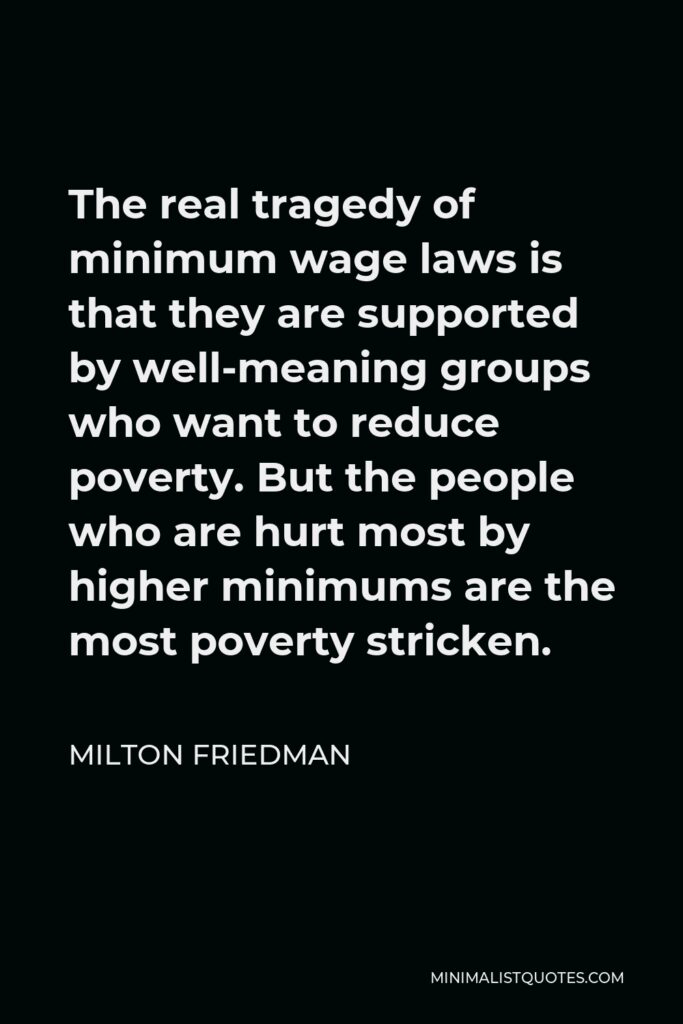

The real tragedy of minimum wage laws is that they are supported by well-meaning groups who want to reduce poverty. But the people who are hurt most by higher minimums are the most poverty stricken.
MILTON FRIEDMAN
